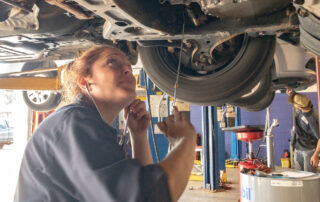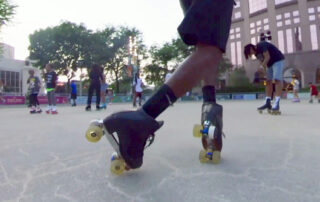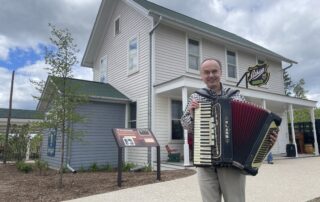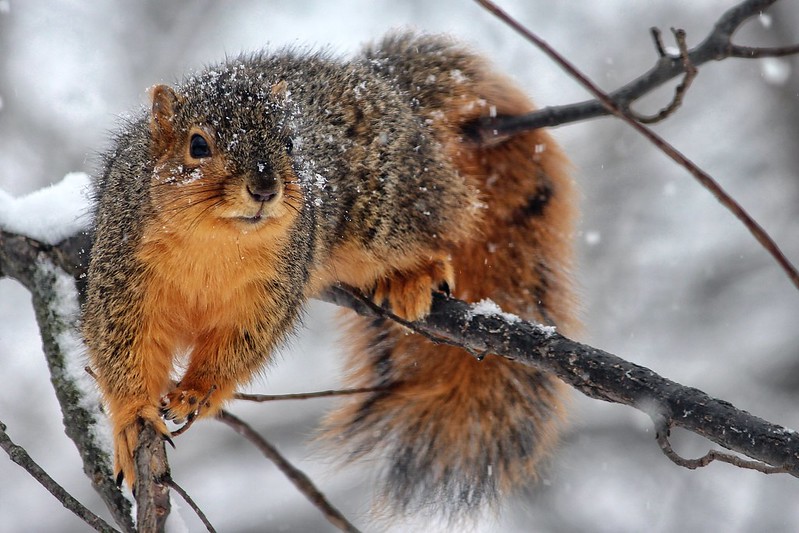Almost every married couple communicates in their own personal language, developed through years of shared experiences. For Emma and Auguste, that language also happens to be how they met and fell in love, nearly four decades ago.
In 1975, Emma was widowed and living in Sturgeon Bay. Auguste was divorced and living with his parents in Belgium. The country in Europe, not the Village of Belgium in Ozaukee County.
A friend convinced Auguste to take a trip to America, even though he did not speak English. “You go to America he said. For what? The people talk the same language, the walloon.”
Auguste grew up speaking French and Walloon. The trip was part of an ongoing cultural exchange between Walloon-speaking Belgians and Walloon-speaking Americans in northeast Wisconsin. “My friend, he told me look Auguste, if you find a woman. Oh no, I was divorced. No way, I told him that.”
Once in Wisconsin Auguste ended up staying at the house of a family that did not speak Walloon, but the family knew Emma, who had grown up with the language. “She said that does it,” Emma says of her friend. “You’re going to come over for dinner one night and translate.”
They hit it off immediately. “I guess he was my dessert,” says Emma.
Emma was born in the Door County community of Fairland in 1922. Her first language was Walloon. “The Walloon language was being spoken by everybody at that time.”
In the 1850’s, thousands of Belgians emigrated to Northeast Wisconsin, in search of cheap land. Many of them settled in small communities like Fairland and Brussels in Door County.
Like most immigrants they brought their own language and religious traditions. And like most immigrant groups those traditions faded a little with each new generation.
Emma’s parents knew a little English. “My father had a grocery store, so he had to mingle with more people, but my mother knew only broken English.”
Emma started learning English from her older sisters. “They had to speak English because they were in school.”
As she went to school Walloon started to disappear. “It got to the point where the Walloons were a little embarrassed to speak Walloon in public.”
By 1975 Emma’s Walloon was a little rusty. “I didn’t forget it except I really broke it up when I tried talking it.”
Her relationship with Auguste was often translated through three languages. “This French Dictionary that he had with him, we took every place except to church. We went for fish every Friday night. That book had to be with us because if he would say something in French, it would tell me what he said in English. Then I’d take it from there and try to think of it in Walloon.”
When Auguste returned to Belgium he invited Emma to visit him. “Everybody in my family wait for the American woman to talk Walloon. They never heard that.”
“I’ll never get the red carpet like that again,” recalls Emma. “Oh my God it was something.”
Auguste came back to the United States at Christmas and stayed. “I said he forgot to go home,” says Emma. “We were married in March. I said, boy I hardly knew the guy.”
“I stay here for 36 years,” says Auguste.
“I think I’ll keep him for a while,” says Emma.
For more information about Walloons, click here.







